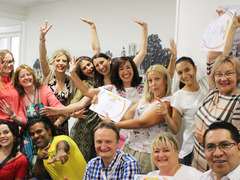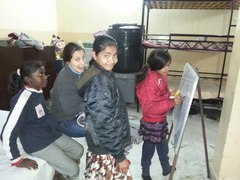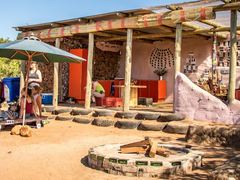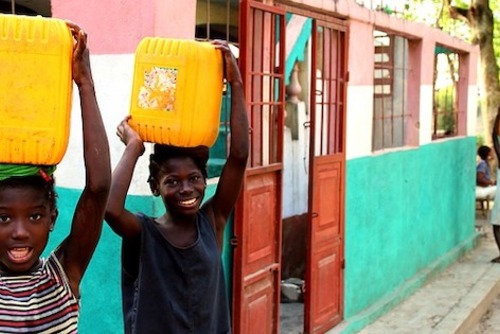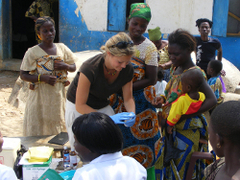The U.S. public shows its support for advancing human dignity and peace in the world through contributions to InterAction members totaling more than twice the amount they receive from the U.S. government. InterAction leverages the impact of this private support by advocating for the expansion of U.S. government investments and by insisting that policies and programs are responsive to the realities of the world’s poorest and most vulnerable populations.
InterAction member organizations collaborate with each other through nearly 30 issue- or regionally focused working groups. These groups provide a forum for information sharing, peer learning, capacity strengthening, development of collective advocacy positions and combining member expertise to produce practical “how to” materials.
Working Groups are a central part of the way InterAction supports and aids its members. Working Groups are first and foremost a place for member agencies to share information that is important to them in several ways:
* by providing a way for member organizations to share information about field-based issues, concerns, and topics;
* by serving as a place for members to receive training and to share best practices with each other; and
* by offering a space for members to develop new products and materials on a given topic.
Working Groups are member driven and supported by InterAction staff (with the exception of a few non-staffed working groups). Members identify an interest, issue area, or need around which they feel their collective voices will clarify or strengthen responses. Depending on the number of member organizations interested, a meeting or consultation is planned to explore the topic and allow members to share their issues and concerns. Such consultations or exploratory meetings may lead to the formation of an on-going Working Group.
InterAction
Countries: United States / Worldwide
Through InterAction, organizations and individuals help shape the direction of the U.S. humanitarian and development efforts, from leveraging resources, developing effective partnerships, determining norms of aid effectiveness and protecting the space and environment in which we operate.
Update Listing
Apply to update this profile.
Learn more about advertising opportunities or contact us for details.
InterAction Reviews

Related Opportunities
Cooking Classes in Bilbao, Spain
- Instituto Hemingway
- Bilbao
- 1 week to 1 year
- 100 to 250 € Euro
ELE Teacher Training Course in Madrid
- AIL Madrid
- Spain
- 1 week to 1 week
- 250 to 250 € Euro
Experience a summer exchange program, right here in America
- InterExchange
- United States
- 6 weeks to 3 months
Help in an Orphanage in Jaipur, India
- Aii Group
- Jaipur, Rajasthan
- 1 week to 6 months
- 250 to 2000 $ Dollars (US)
Ocean Conservation Volunteer Project, Plettenberg Bay, South Africa
- Good Hope Volunteers
- Plettenberg Bay, South Africa
- 2 weeks to 3 months
- 1250 to 3000+ € Euro
Special Needs Care in Naples
- International Napoli Network
- Naples
- 4 weeks to 3 months
- 100 to 1500 € Euro
Volunteer & Learn Arabic In Palestine
- The Excellence Center in Palestine
- Palestine
- 1 week to 3 months
- 100 to 2500 $ Dollars (US)
Volunteer with a Rural Community in South Africa
- Hamba Africa
- Hoedspruit
- 2 weeks to 6 months
- 250 to 1000 £ Pound (UK)
Related Articles
Supporting Volunteers with Special Needs: 14 Key Steps
Volunteering is an experience which should be open to everyone, no matter, faith, background or ability.
22/08/2024
Volunteer in Haiti
Haiti is one of the poorest countries in the world and if you would like to give back you can apply to volunteer in H...
05/08/2019
Top 8 Remote Work Tools for Remote Teams
Many companies - from startups to large corporations - are now comfortable allowing their employees to work remotely....
08/09/2020
How to Maintain Relationships With Your Global Clients
Owning a business today means having access to the largest consumer base in the history of the world. Italian luxury car...
08/03/2022
Humanitarian, Hurricane & Disaster Relief Volunteering Abroad
Join humanitarian programs and help make a difference in countries affected by disasters, poverty and natural disaste...
12/11/2009
The Role of AI in Software Training Companies
Artificial intelligence (AI) is revolutionizing software training, benefiting various industries, particularly those spe...
31/07/2024



